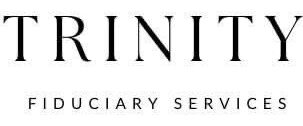
Personal Trust Services
Managing your trust assets with knowledgeable and trustworthy oversight includes but is not limited to:
Administrative and recordkeeping responsibilities
- Administer trust according to the specific terms of the trust agreement
- Exercise the trustee's discretion when appropriate
- Provide continuity of administration during times of grantor's incapacity or disability
- Maintain detailed records of all account transactions
- Issue annual or quarterly principal and income statements and asset summaries
Tax-related responsibilities
- Keep record of taxable and tax-exempt income
- Collaborate with your CPA to file trust tax returns annually and furnish tax information to beneficiaries
Hold, manage, and safeguard your assets
- Work closely with your personal investment advisor.
- Carefully monitoring the performance of the investments.
- Assets may also include farms, commercial property, real estate, and other unusual or non-liquid assets.
Estate Administration Services
Providing expert solutions for estate settlement and wealth transfer includes but is not limited to:
- Implementing your plan
- Asset safeguarding, collection, valuation, distribution and management
- Communication with family, charitable and non-charitable beneficiaries
- Collaboration with your advisors to develop tax and legal strategies to realize tax savings, with tax preparation and review
- Holding and disposing of unique assets
- Perform forensic accounted if required
- Guidance of beneficiaries throughout the settlement process
- Preparation of final estate accounting (if probate, file final accounting with the court)


Conservatorship Services
Ensuring that the client’s finances are properly managed and utilized for the benefit of the client under court appointment by:
- Creating an inventory of the conservatee’s assets to submit to the court
- Filing periodic accountings of the conservatee’s assets with the court
- Ensuring the conservatee’s valuable assets are properly insured
- Paying the conservatee’s bills
- Paying the conservatee’s taxes
- Collecting the conservatee’s income
- Preserving and managing the conservatee’s assets (e.g., by placing them in interest-bearing bank accounts)
- Keeping thorough records of every financial transaction they make on behalf of the conservatee
